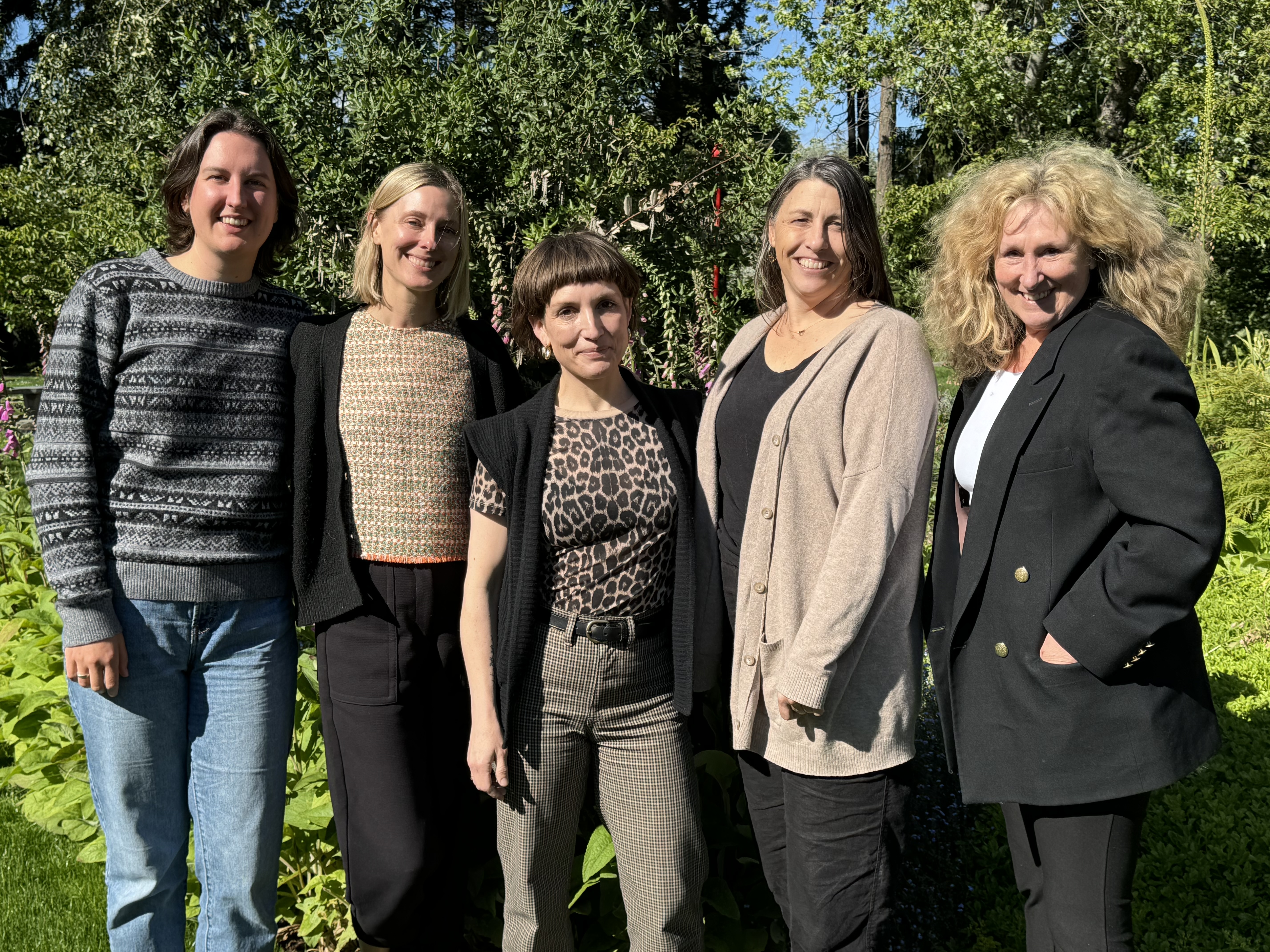
By Kenzie Love
SHIFT Collaborative was founded in 2017 by a group of five British Columbia women seeking to create a better world. The founders had extensive experience providing process design and facilitation support to government, nonprofit and community organizations, and realized a new approach was needed to tackle the tough issues such as poverty and climate change that they were working on.
“We were seeing a need for new and novel approaches,” says cofounder Kerri Klein. “So going beyond business as usual. And we all shared that commitment in our practice to work in ways that bring different sectors together and identify and work with root causes, work with systems and also attend to the inner human dimensions of change. And so that’s really how SHIFT was born; it was a collaborative of consultants that really shared a commitment to supporting conditions for systems change.”
Drawing on their background in community development, the founders were familiar with worker co-ops as an alternative business model, and some of them had prior experience belonging to them. SHIFT’s members wanted a structure in which the people doing the work would also be making the decisions, and they were also drawn to the co-op principles as a whole in creating the Co-op. They were also intentional in establishing themselves as a collaborative organization, one which would have core members who would work on projects with other individuals and organizations as the need arose.
Seven years into SHIFT’s journey, Klein believes the Co-op has fulfilled its aim of making a difference in the world, undertaking projects in areas including climate resilience, sustainable food systems, and housing for all. She has found the freedom to work on distinct projects, while also belonging to something bigger, a particularly rewarding experience.
“All the members benefit from the work that other members do,” she says. “So it feels really rewarding that even if I’m not involved in a project but another member is, that we’re all benefiting from that. I think it’s provided just enough structure and principles to keep us committed and clear that the members are the ones doing the work. And I think that’s what keeps us there. It’s allowed for enough flexibility within those structures to co-create policies and differentiation of roles that meets our needs, but we’re all committed to that co-op structure.”
The co-op structure, Klein believes, has allowed SHIFT’s members to take on different roles within the organization and adjust to changing life circumstances. But while SHIFT’s status as a worker co-op remains important to its members, they have encountered a lack of understanding of the model among professionals they work with and some of their clients. Many don’t realize what kind of business they’re working with.
“I don’t know if it’s a challenge, but I think it’s a lost opportunity,” Klein says.
The Co-op has found an opportunity, however, to specialize in the areas where it’s had the most impact, and this will be key to its planning for the future. SHIFT’s members are also keen to build stronger ties to the wider co-op movement, and Klein believes that now is an opportune time for this as well.